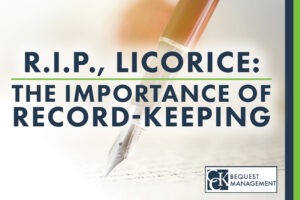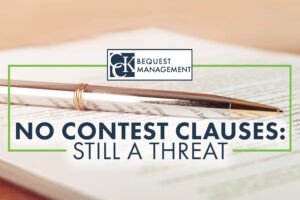Explore
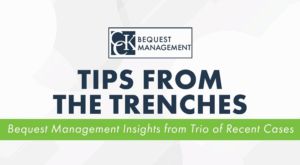

Bequest Management
Tips from the Trenches: Bequest Management Insights from Trio of Recent Cases
May 15, 2025
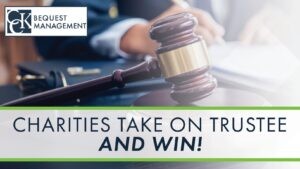



Bequest Management
“When Google Altered Its Ad Rules, Charities Paid the Price,” Says New York Times
February 3, 2025


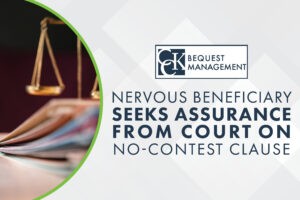

Bequest Management
Nervous Beneficiary Seeks Assurance from Court on No Contest Clause
November 20, 2024
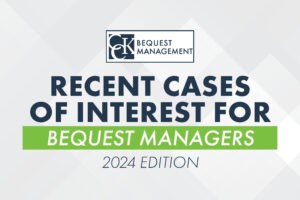







Bequest Management
No Signature? No Problem! Defective Beneficiary Form Is Good Enough
August 14, 2024
